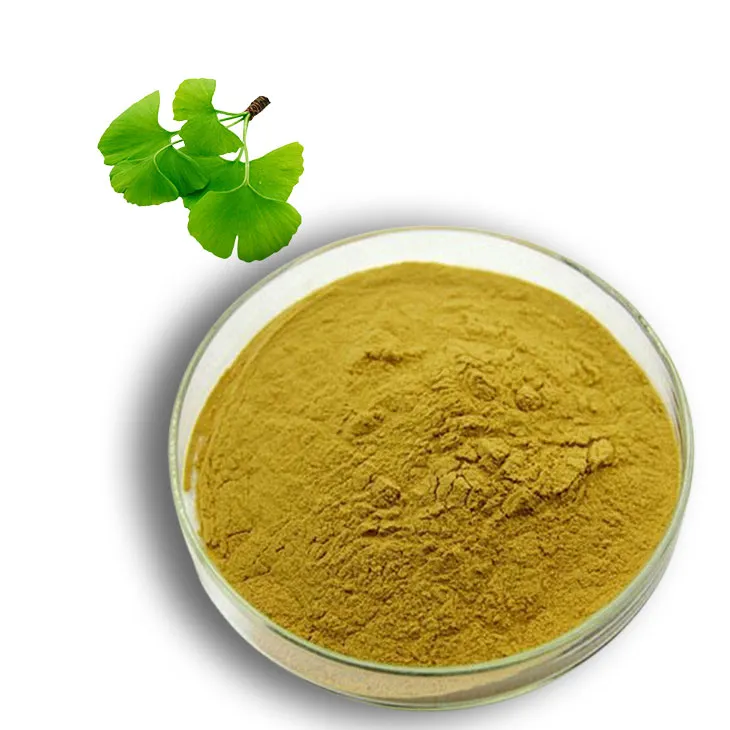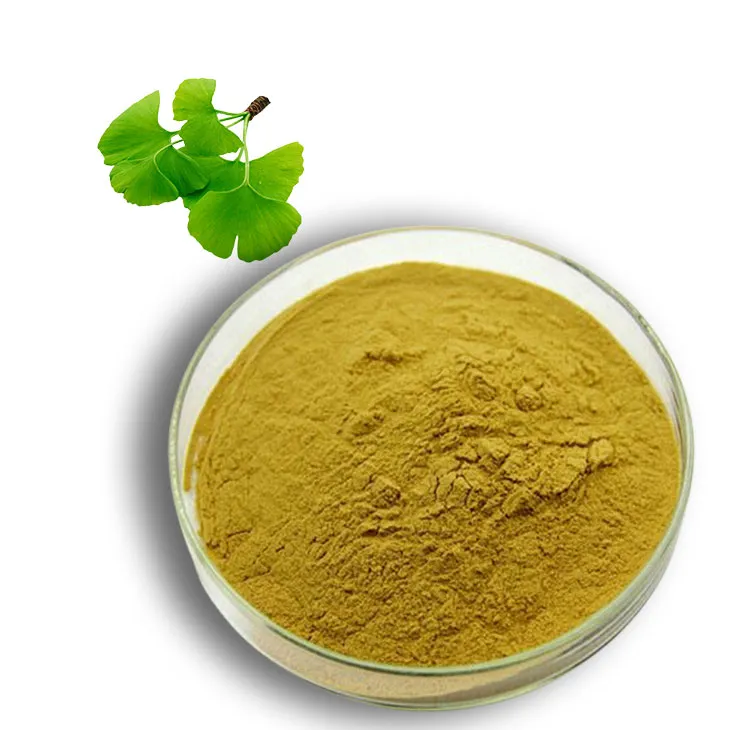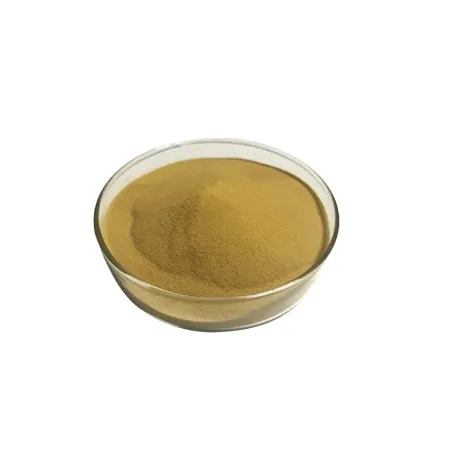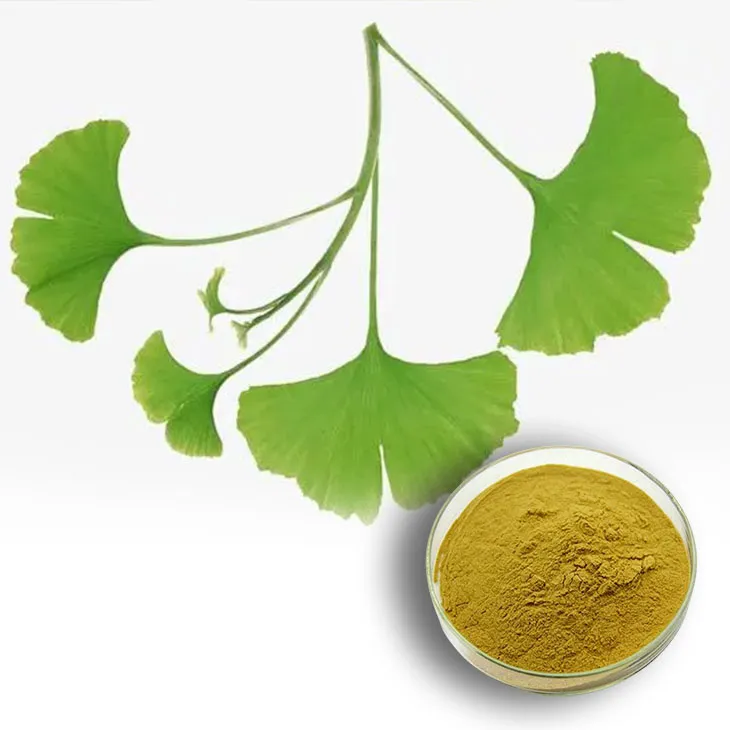- 0086-571-85302990
- sales@greenskybio.com
Best Answers to 7 Key Questions about Ginkgo Biloba Extract.
2024-12-15

1. What is Ginkgo Biloba Extract?
Ginkgo biloba extract is derived from the leaves of the Ginkgo biloba tree, one of the oldest living tree species. This extract contains a complex mixture of compounds, including flavonoids and terpenoids. Flavonoids, such as Quercetin and kaempferol, are known for their antioxidant properties. Terpenoids, like ginkgolides and bilobalide, are unique to Ginkgo biloba and are believed to play important roles in its potential health effects.
The extraction process is carefully controlled to obtain these bioactive components. The extract is available in various forms, such as tablets, capsules, and liquid extracts, making it accessible for different consumer preferences.

2. What are the Potential Health Benefits?
2.1 Cognitive Function
- One of the most widely studied areas is its impact on cognitive function. Some research suggests that Ginkgo biloba extract may improve memory, attention, and concentration. It is hypothesized that the flavonoids and terpenoids in the extract may enhance blood flow to the brain, which could potentially benefit cognitive processes. For example, in some small - scale studies on older adults with mild cognitive impairment, participants who took Ginkgo biloba extract showed slight improvements in memory tasks compared to those who took a placebo.
2.2 Antioxidant Effects
- The flavonoids in Ginkgo biloba extract are powerful antioxidants. They can neutralize free radicals in the body, which are unstable molecules that can cause damage to cells and DNA. By reducing oxidative stress, the extract may play a role in preventing various chronic diseases, such as heart disease, cancer, and neurodegenerative disorders.
2.3 Circulation
- Ginkgo biloba extract has been associated with improved blood circulation. It may help dilate blood vessels, both in the brain and throughout the body. This can lead to better oxygen and nutrient delivery to tissues. In particular, for individuals with peripheral vascular disease, where blood flow to the extremities is restricted, Ginkgo biloba extract may offer some relief by improving circulation in the legs and feet.

3. Are there any Side Effects?
- While Ginkgo biloba extract is generally considered safe for most people when taken as directed, it can have some side effects.
- Mild Side Effects:
- Gastrointestinal issues such as nausea, diarrhea, and stomach upset are relatively common. These usually occur when higher doses are taken or when the body is first adjusting to the supplement. For example, some people may experience mild nausea within the first few days of starting to take Ginkgo biloba extract, but this often subsides as the body gets used to it.
- Headache is another possible mild side effect. It may be related to changes in blood flow or the body's response to the compounds in the extract.
- Serious Side Effects (Rare):
- There have been reports of more serious side effects, although they are very rare. In some cases, bleeding problems have been associated with Ginkgo biloba extract. This is because it may affect blood clotting, similar to the way aspirin does. People who are taking blood - thinning medications or have bleeding disorders should be especially cautious when considering Ginkgo biloba extract.

4. How Should it be Taken?
- Dosage:
- The appropriate dosage of Ginkgo biloba extract can vary depending on the intended use and individual factors. For general health benefits, a common dosage is around 120 - 240 mg per day, usually divided into two or three doses. However, for specific conditions such as cognitive impairment, higher doses may be recommended under the supervision of a healthcare provider.
- Timing:
- It is typically best to take Ginkgo biloba extract with food to reduce the likelihood of gastrointestinal side effects. If taking it for cognitive benefits, some people find it more effective to take it in the morning or early afternoon, as it may help with focus and concentration during the day.
- Duration:
- The length of time one should take Ginkgo biloba extract also depends on the purpose. For short - term use to address a specific symptom or during a period of increased stress, it may be taken for a few weeks to a couple of months. However, for long - term health maintenance, it can be taken continuously, but regular check - ups with a healthcare provider are advisable to monitor for any potential side effects.

5. Is it Suitable for Everyone?
- Pregnant and Breastfeeding Women:
- It is not recommended for pregnant or breastfeeding women. There is not enough research to determine its safety during pregnancy and lactation, and there are concerns that the compounds in the extract may affect the developing fetus or be passed through breast milk to the infant.
- Children:
- Generally, Ginkgo biloba extract is not intended for use in children, as there is limited research on its effects in this population. The developing bodies of children may respond differently to the extract, and it is important to err on the side of caution.
- People with Certain Medical Conditions:
- As mentioned earlier, those with bleeding disorders or taking blood - thinning medications should use Ginkgo biloba extract with extreme caution. Additionally, people with diabetes should be aware that it may interact with medications used to control blood sugar levels. It is always important to consult a healthcare provider before starting Ginkgo biloba extract, especially if you have an underlying medical condition.
6. How Does it Interact with Medications?
- Blood - Thinning Medications:
- Ginkgo biloba extract can interact with blood - thinning medications such as warfarin and aspirin. Since it may also affect blood clotting, taking it in combination with these medications can increase the risk of bleeding. This interaction can be serious and requires careful monitoring if both the supplement and the medication are being used.
- Antidepressants:
- There may be interactions between Ginkgo biloba extract and certain antidepressants. Some research suggests that it could potentially affect the metabolism of these drugs in the body, leading to either increased or decreased effectiveness. For example, in the case of selective serotonin reuptake inhibitors (SSRI), the interaction with Ginkgo biloba extract may require adjustment of the antidepressant dosage to achieve the desired therapeutic effect.
- Diabetes Medications:
- For people with diabetes, Ginkgo biloba extract may interact with medications used to control blood sugar levels. It could potentially cause changes in blood glucose levels, either increasing or decreasing them. Therefore, diabetics should closely monitor their blood sugar if they decide to take Ginkgo biloba extract and consult their healthcare provider regularly.
7. What is the Quality and Purity of Ginkgo Biloba Extract Products?
- Standardization:
- High - quality Ginkgo biloba extract products are often standardized. Standardization ensures that the product contains a consistent amount of the active compounds, such as flavonoids and terpenoids. For example, a standardized extract may be guaranteed to contain a specific percentage of ginkgolides and bilobalide. This helps to ensure the product's effectiveness and reliability.
- Testing for Purity:
- Reputable manufacturers will test their products for purity. This includes checking for contaminants such as heavy metals (e.g., lead, mercury), pesticides, and other harmful substances. Products that have been third - party tested are often more reliable, as an independent laboratory has verified their quality and purity.
- Source of the Extract:
- The source of the Ginkgo biloba extract can also affect its quality. Extracts from well - cultivated and carefully harvested Ginkgo biloba trees are likely to be of higher quality. Some regions are known for their high - quality Ginkgo biloba production, and products sourced from these areas may be more desirable.
FAQ:
Question 1: What is Ginkgo biloba extract?
Ginkgo biloba extract is derived from the Ginkgo biloba tree. It contains a variety of bioactive compounds, such as flavonoids and terpenoids. These components are believed to have potential health - promoting effects, like antioxidant and anti - inflammatory properties.
Question 2: What are the main health benefits of Ginkgo biloba extract?
Some potential health benefits include improved cognitive function. It may enhance memory, concentration, and overall mental performance. It has also been studied for its potential to improve blood circulation, which could be beneficial for cardiovascular health. Additionally, it may have a role in reducing symptoms of age - related macular degeneration.
Question 3: Are there any side effects of Ginkgo biloba extract?
Yes, there can be side effects. Some people may experience mild gastrointestinal issues such as nausea, vomiting, or diarrhea. In more rare cases, it may cause headaches, dizziness, or allergic reactions. It can also interact with certain medications, so it's important to consult a healthcare provider before taking it, especially if you are on other medications.
Question 4: How should Ginkgo biloba extract be taken?
The recommended dosage can vary depending on the form (e.g., tablets, capsules, liquid) and the intended use. Generally, it is taken orally. However, it is crucial to follow the instructions on the product label or the advice of a healthcare professional. It's not advisable to exceed the recommended dose as this may increase the risk of side effects.
Question 5: Is Ginkgo biloba extract suitable for everyone?
No. Pregnant or breastfeeding women should avoid it as there is not enough evidence to ensure its safety for them. People with bleeding disorders should also be cautious as Ginkgo biloba extract may increase the risk of bleeding. Additionally, those with a history of seizures should consult a doctor before using it as it may potentially trigger seizures in some cases.
Related literature
- The Pharmacology and Therapeutic Applications of Ginkgo biloba Extract"
- "Ginkgo biloba Extract: A Review of Its Neuroprotective Effects"
- "Beneficial Effects of Ginkgo biloba Extract on Cardiovascular Health"
- ▶ Hesperidin
- ▶ citrus bioflavonoids
- ▶ plant extract
- ▶ lycopene
- ▶ Diosmin
- ▶ Grape seed extract
- ▶ Sea buckthorn Juice Powder
- ▶ Beetroot powder
- ▶ Hops Extract
- ▶ Artichoke Extract
- ▶ Reishi mushroom extract
- ▶ Astaxanthin
- ▶ Green Tea Extract
- ▶ Curcumin Extract
- ▶ Horse Chestnut Extract
- ▶ Other Problems
- ▶ Boswellia Serrata Extract
- ▶ Resveratrol Extract
- ▶ Marigold Extract
- ▶ Grape Leaf Extract
- ▶ blog3
- ▶ blog4
- ▶ blog5
-
Pure 85% Tomentil Extract.
2024-12-15
-
Curcumin
2024-12-15
-
Lily extract
2024-12-15
-
Sugarcane Extract
2024-12-15
-
Rose Hip Extract
2024-12-15
-
Camu Camu Extract
2024-12-15
-
Apricot Powder
2024-12-15
-
Artichoke Extract
2024-12-15
-
Buckthorn bark extract
2024-12-15
-
Okra Extract
2024-12-15
-
Phellodendron Extract
2024-12-15





















